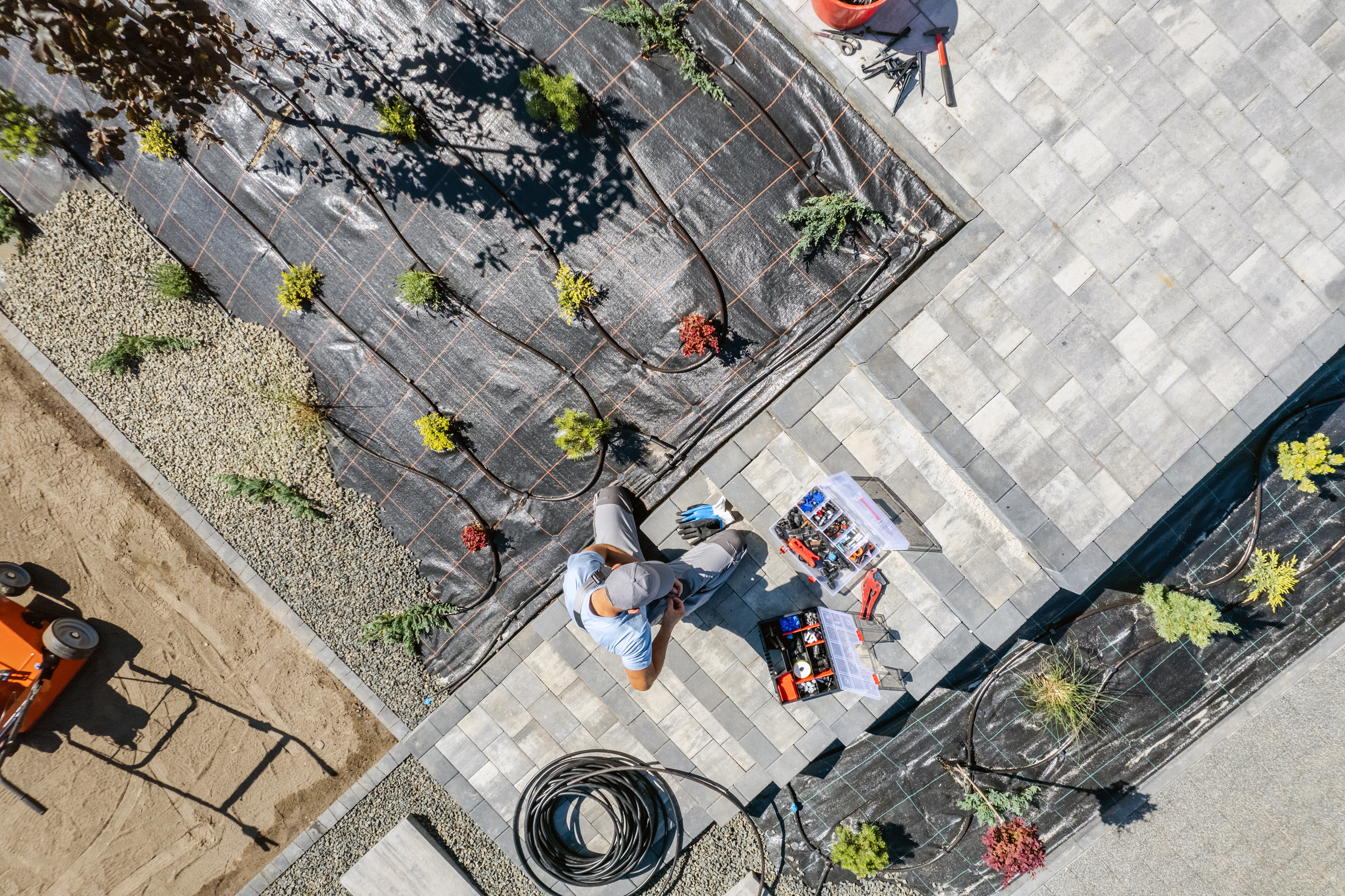Introduction
Hiring a skilled contractor for paver installation projects is crucial to ensure quality results and long-lasting durability. Whether you’re planning to enhance your outdoor space with a new patio, driveway, or walkway, the expertise of a professional can make all the difference. Mistakes in paver installation can lead to uneven surfaces, poor water drainage, and increased maintenance costs.
This guide provides step-by-step instructions on how to find and hire the right paver installation contractor for your needs. Covering everything from understanding your project requirements to evaluating potential contractors’ credentials, this comprehensive hiring guide aims to equip you with the knowledge to make an informed decision.
Understanding Your Project Needs
Defining your project scope is vital before hiring a paver installation contractor. Whether you’re planning a patio, driveway, or walkway, knowing what you want will streamline the process.
Project Type and Design Preferences
Patio
Ideal for outdoor living spaces, offering a place to relax and entertain.
Driveway
Requires durable materials that can withstand vehicle weight.
Walkway
Focuses on aesthetics and functionality, connecting different areas of your property.
Understanding material options also plays a crucial role. Common choices include:
- Concrete Pavers: Durable and versatile, suitable for various designs.
- Brick Pavers: Classic look, known for strength and longevity.
- Stone Pavers: Natural appearance, adds elegance but can be costlier.
Establishing a Realistic Budget
Setting a budget early in the process helps manage expectations. Consider the following:
- Materials Cost: Prices vary based on type and quality. Concrete is often more affordable than natural stone.
- Labor Costs: Skilled labor is essential for quality results; expect higher costs for experienced contractors.
- Additional Expenses: Include costs for base materials, edging, drainage solutions, and possible permits.
Assessing these factors ensures you’re prepared when discussing your project with potential contractors. This groundwork lays the foundation for informed decision-making as you proceed with your paver installation project.
Researching Potential Contractors
Finding the right contractor begins with a thorough contractor search. Using online research can be highly effective. Websites like HomeAdvisor, Angie’s List, and Houzz offer comprehensive databases of local contractors. These platforms allow you to filter by location, read customer reviews, and view ratings. Google searches and social media platforms such as Facebook or Instagram can also provide insights into contractors’ reputations and portfolios.
Using referrals is another powerful strategy. Asking friends, family, or neighbors who have recently completed similar projects can yield trustworthy recommendations. Local home improvement stores often have bulletin boards or staff who can suggest reputable contractors in your area.
Combining both online research and referrals increases your chances of finding a reliable professional. Make a list of potential contractors from these sources for further evaluation.
Evaluating Contractor Credentials and Experience
When hiring a paver installation contractor, verifying their licenses and insurance coverage is crucial. Ensuring the contractor holds the necessary licenses protects you from unqualified work and potential legal issues. Confirming their insurance coverage safeguards against any accidents or property damage that might occur during the project.
Certifications are another important aspect to consider. Certifications such as those from the Interlocking Concrete Pavement Institute (ICPI) or Belgard Master Craftsman indicate a high level of expertise in paver installation. These certifications demonstrate that the contractor has undergone extensive training and adheres to industry standards.
Here’s a checklist to help you evaluate contractor credentials:
- Licenses: Verify that the contractor has all required state and local licenses.
- Insurance: Ask for proof of insurance, including general liability and worker’s compensation.
- Certifications: Look for relevant certifications like ICPI or Belgard Master Craftsman.
- Experience: Inquire about their experience with projects similar to yours.
Evaluating these credentials ensures you’re hiring a qualified professional who can deliver quality results.
Reviewing Contractor Portfolios and References
Portfolio Review
Requesting a portfolio of past work from potential contractors is crucial for assessing their skill level and style. A well-curated portfolio gives you insight into their capabilities and helps you determine if their aesthetic aligns with your vision. Look for:
- Diverse Project Types: Ensure the contractor has experience with various projects like patios, driveways, and walkways.
- Quality of Work: Examine the craftsmanship and attention to detail in finished projects.
- Design Versatility: Check for creativity and versatility in designs, indicating the ability to handle unique requests.
Reference Checks
Contacting references provided by the contractor offers invaluable insights. When reaching out, consider asking the following questions:
- Project Satisfaction: Were you satisfied with the final outcome of your project?
- Communication: How effective was the contractor in communicating throughout the project?
- Timeliness: Did they complete the work within the agreed timeframe?
- Budget Adherence: Was the project completed within budget, or were there unexpected costs?
- Problem-Solving: How did the contractor handle any issues or changes during the project?
By thoroughly reviewing portfolios and conducting reference checks, you gain a comprehensive understanding of each contractor’s reliability and expertise, ensuring you make an informed decision.
Requesting Detailed Quotes from Multiple Contractors
Getting quotes from different contractors is crucial for accurately comparing costs. This process helps you find the best value for your paver installation project. When asking for quotes, make sure they are detailed and comprehensive.
Key Elements to Include in a Quote
- Materials: Specify the type of pavers, base materials, and any additional items like edging or sealant.
- Labor Costs: Ensure the labor costs cover all aspects of the project, including preparation, installation, and cleanup.
- Estimated Project Timeline: Ask for a clear timeline that outlines start and end dates, as well as critical milestones.
A detailed quote should also include any potential additional costs such as permits or unexpected complications. Comparing these elements across multiple quotes will provide a clearer picture of what each contractor offers and at what price.
By carefully reviewing and comparing these detailed quotes, you can make a more informed decision aligned with your budget and project expectations.
Meeting with Potential Contractors In-Person or Virtually
When meeting potential contractors, whether in-person or virtually, it’s essential to cover key topics to gauge their suitability for your project. Contractor interviews are your opportunity to delve deeper into their qualifications and fit for your needs.
Key Topics to Address
1. Experience Level
- Ask about their specific experience with projects similar to yours. For example, if you need a driveway, inquire about their past driveway installations.
- Discuss any challenges they’ve encountered in previous projects and how they overcame them.
2. Availability
- Confirm their availability to start and complete your project within your desired timeline.
- Understand their current workload to ensure they can devote adequate time and resources to your installation.
3. Communication Style
- Assess how clearly and promptly they communicate during the interview. Effective communication is crucial throughout the project.
- Ask about their preferred methods of communication (e.g., phone, email, in-person meetings) to ensure compatibility with your preferences.
4. Trust Your Instincts
Trusting your instincts is vital when choosing a contractor. A good personal rapport can make the entire process smoother and more enjoyable. If something feels off during the discussion, it’s worth considering other options.
- Evaluate how comfortable you feel discussing your project with them.
- Consider if you believe they understand your vision and are genuinely interested in delivering quality work.
By addressing these key topics and trusting your instincts, you can effectively evaluate potential contractors for a successful paver installation project.
Making Your Final Decision: Choosing the Right Paver Installation Contractor for Your Project
To make the right choice, consider all the factors we’ve talked about:
- Credentials: Check their licenses and insurance to make sure they’re legit and you’re covered.
- Experience: Look at their skills through certifications like ICPI or Belgard Master Craftsman.
- Quotes: Compare detailed quotes from multiple contractors, including materials, labor costs, and timelines.
Balancing these elements will guide you toward selecting a contractor who aligns with your project requirements and budget.
Conclusion
Take your time finding an experienced professional who can deliver quality results within your budget constraints. Rushing through the process may lead to unsatisfactory outcomes. If you have any further questions regarding specific steps mentioned in this guide on How To Find And Hire A Paver Installation Contractor, feel free to reach out directly via phone or email.



